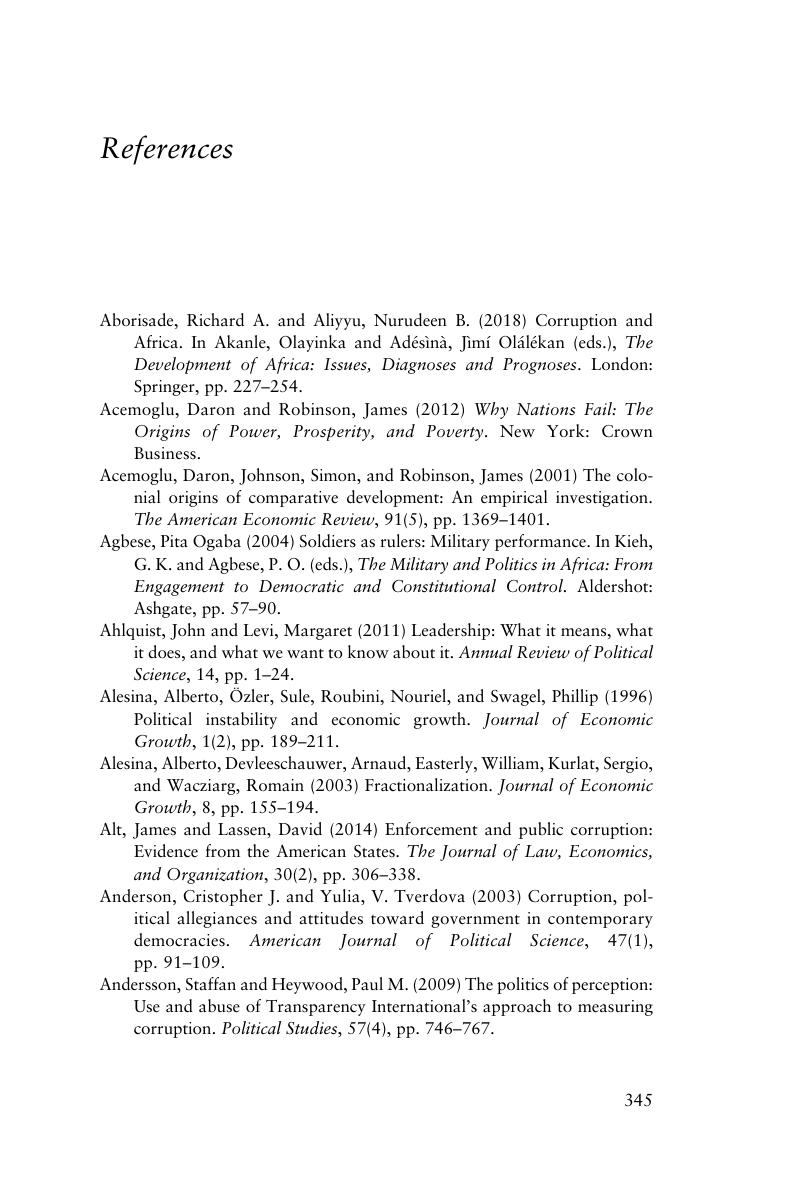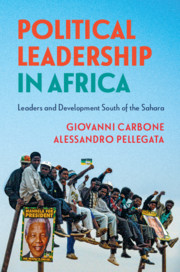Book contents
- Political Leadership in Africa
- Political Leadership in Africa
- Copyright page
- Contents
- Figures
- Tables
- Acknowledgments
- Acronyms
- Introduction
- 1 Leadership, Politics, and Development
- 2 Coming to Power and Using It
- 3 The Africa Leadership Change (ALC) Dataset
- 4 The Changing Dynamics of African Leadership: Rulers before and after 1990
- 5 When the Military Strikes
- 6 Lessening Africa’s “Big Men”
- 7 Leading for Development? (I)
- 8 Leading for Development? (II)
- 9 Autocrats, Hegemons, Democrats, and Transients
- 10 Leaders to Come
- Appendix
- References
- Index
- References
References
Published online by Cambridge University Press: 22 February 2020
- Political Leadership in Africa
- Political Leadership in Africa
- Copyright page
- Contents
- Figures
- Tables
- Acknowledgments
- Acronyms
- Introduction
- 1 Leadership, Politics, and Development
- 2 Coming to Power and Using It
- 3 The Africa Leadership Change (ALC) Dataset
- 4 The Changing Dynamics of African Leadership: Rulers before and after 1990
- 5 When the Military Strikes
- 6 Lessening Africa’s “Big Men”
- 7 Leading for Development? (I)
- 8 Leading for Development? (II)
- 9 Autocrats, Hegemons, Democrats, and Transients
- 10 Leaders to Come
- Appendix
- References
- Index
- References
Summary

- Type
- Chapter
- Information
- Political Leadership in AfricaLeaders and Development South of the Sahara, pp. 345 - 362Publisher: Cambridge University PressPrint publication year: 2020



